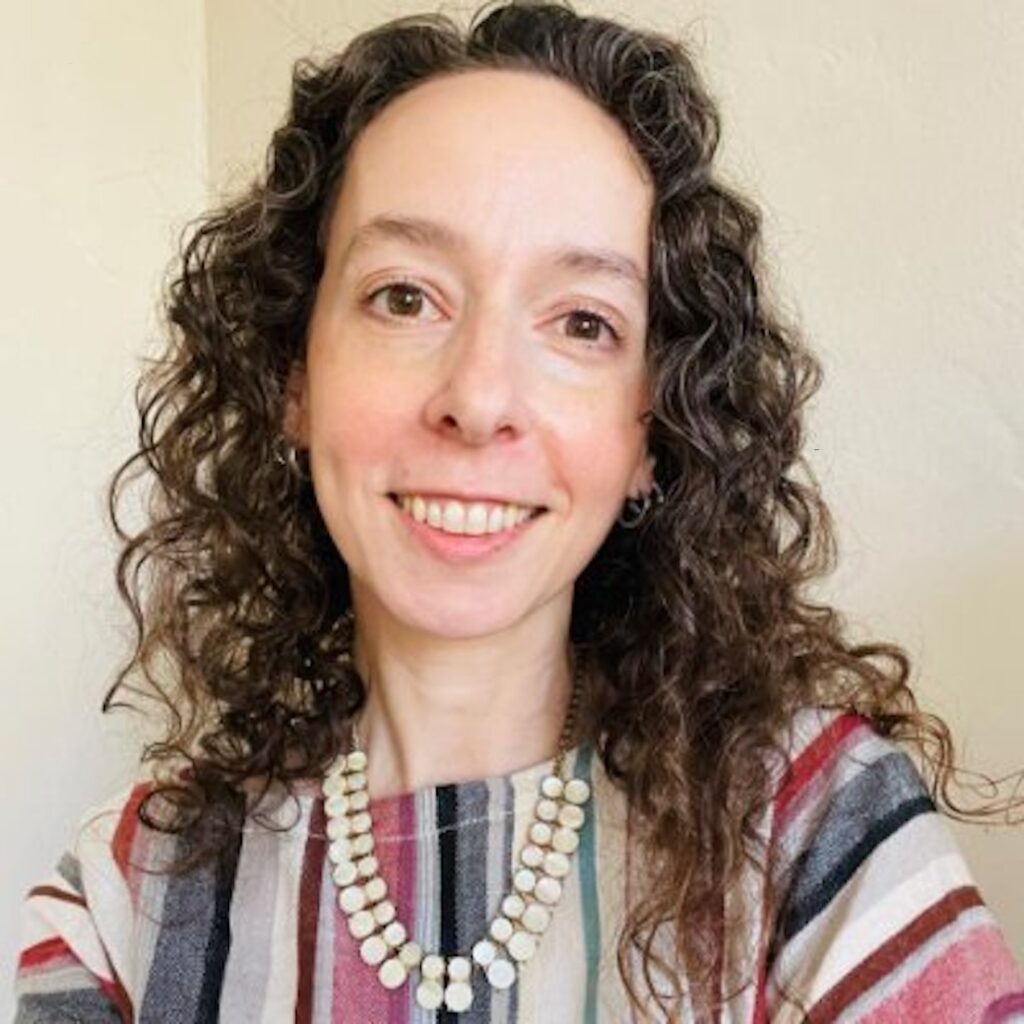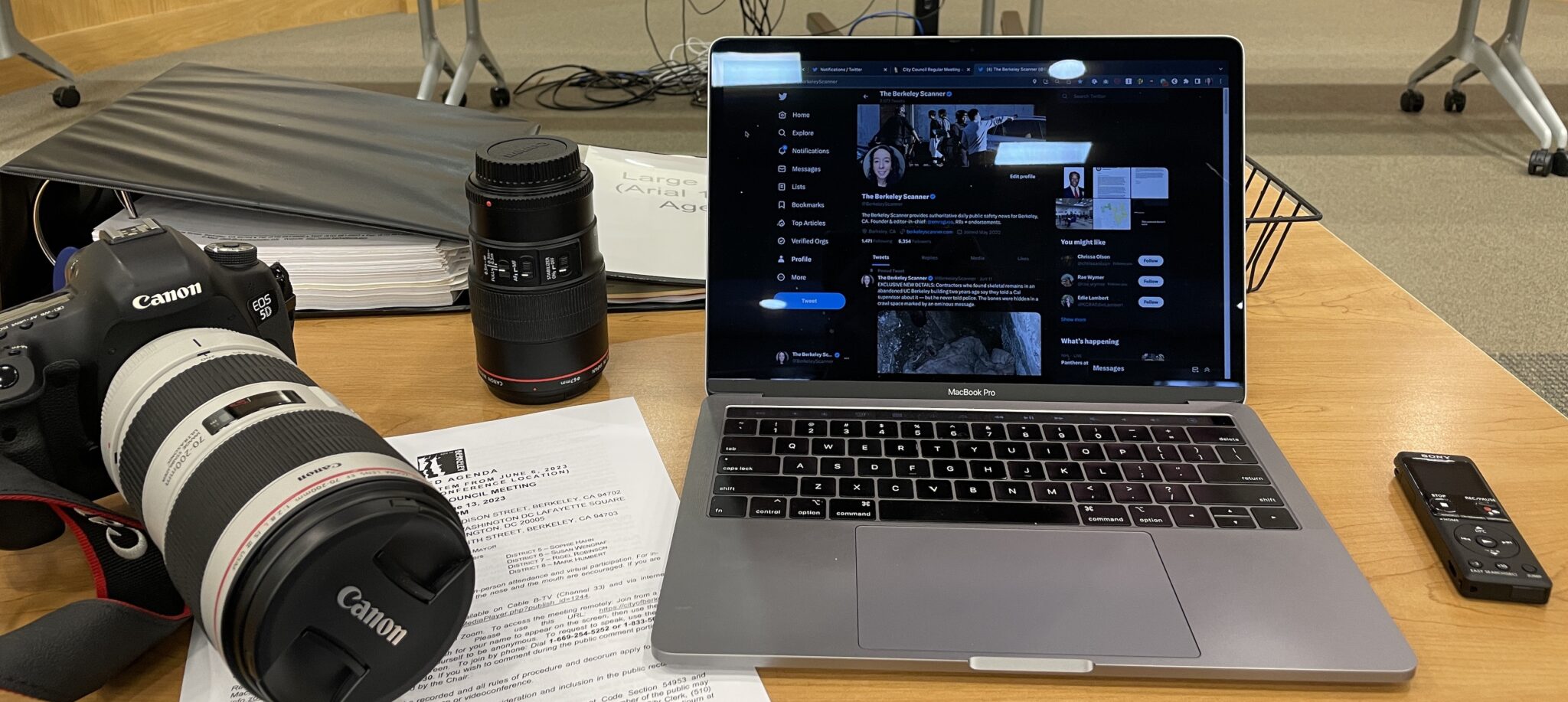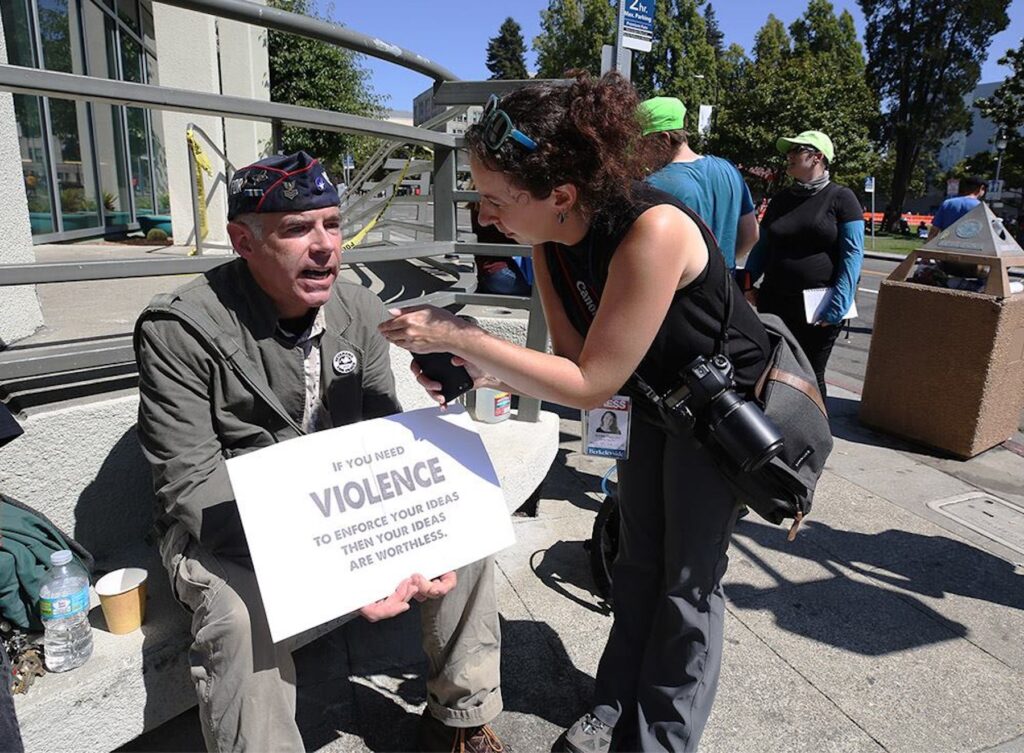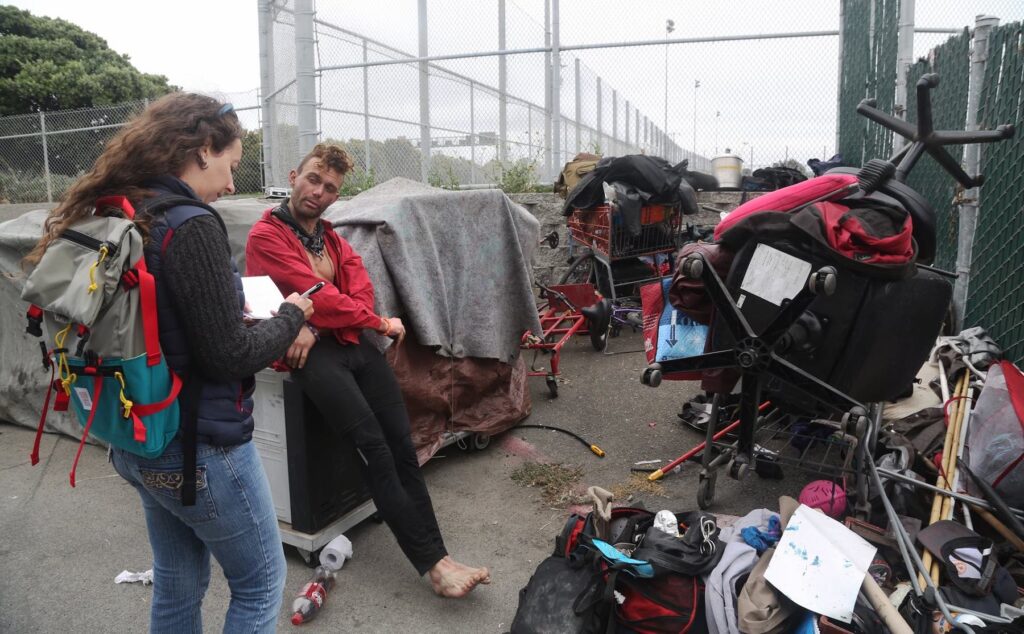When news first broke that a human skeleton was found hidden under a building on Berkeley’s Clark Kerr campus, Emilie Raguso was horrified.
“Every time I leave town in my career, something major happens,” she said. “The weekend that this skeleton announcement happened in January was actually the first time in like four months that I had decided to take a weekend off.”
Raguso, M.J. ‘06, is the founder and editor-in-chief of The Berkeley Scanner, a website that covers crime and public safety in Berkeley. The skeleton was her beat, and she was devastated that she came to it late. She stayed on the story, however, pressing officials about the investigation and calling the coroner, but kept running into dead ends – until, one Sunday in June, she got a call.
“He said, ‘Hey, I was a contractor. I actually found these bones a long time ago,’” she recalls. “I was just immediately like, ‘This story needs to come out.’” Shortly after, she broke the news that the bones had actually been discovered in June 2021, over a year before the university announced the news. “This was pushed under the rug,” said the contractor.
Raguso, who is 45, has been primarily in the East Bay since 2004. When she first started in journalism, she had no idea she would be covering crime for most of her career. She grew up in the Washington D.C. area and got her undergraduate degree in Chinese from Reed College in Portland, Oregon. Hoping to be a human rights journalist in China, she applied to all the top journalism schools and was accepted everywhere but Berkeley. On the advice of Berkeley staff, she moved to the Bay Area for a fact checking internship at Mother Jones magazine and got into Berkeley’s Graduate School of Journalism the following year.

From there, Raguso dove into local journalism. Her first staff position was crime reporter at the Modesto Bee in the Central Valley. After that, she launched and ran the Albany Patch, part of a network of “hyperlocal” news sites, before becoming the senior reporter at Berkeleyside, one of the most successful hyperlocal news sites in America, covering the city of Berkeley. That job, she said, was “amazing.”
But last year, Berkeleyside began thinking about how to transition from traditional, day-to-day crime reporting to examining larger trends and issues like police reform. The editors there felt the “if it bleeds it leads” approach was harmful to the community. That direction didn’t fit with Raguso’s vision of covering public safety in Berkeley in a robust, comprehensive, and timely way. So, in September, 2022, she broke off on her own, launching the Berkeley Scanner to continue covering a beat she believed was important and resonated with the community. Along with crime, she covers public safety-adjacent topics like fire, city council, the courts, and the DA’s office.
The skeleton mystery is just one of several remarkable stories she’s covered since starting the Scanner. In October of 2022, two brothers were killed at a party where they weren’t the intended victims. The next week, there was a shooting on Telegraph that killed one man and wounded three of his relatives. Throughout the winter, unusually heavy rain, low temps, and even snow struck the town, and in December a two-alarm fire destroyed a house in the Berkeley hills.
“I kept thinking, oh, at some point things are going to have to go back to normal and this will be the job I signed up for,” Raguso laughed. Right now, she’s a one-woman show, reporting from late morning until the early hours of the next day. Sometimes she works until 6 a.m. “That’s just my biorhythm,” she said.
The Scanner’s online site is free to read, but readers can choose to support her by paying $8-$18 for increasing perks through Ghost, a platform similar to the newsletter subscription service Substack.
“I didn’t really do a big financial analysis, to my parents’ chagrin,” Raguso said. “I was kind of just like, ‘I believe people are going to respond to this.’” She set a goal of a thousand members, which would make the site financially viable, and hoped it would happen in a year or two. In the fall alone, she gained 500 members, which have since grown to over 1000.
Her readers appreciate her coverage: One woman wrote in to thank her for her story about a sex offender working in the grocery store where she frequently shopped with her daughter. Some have asked if she can expand into Oakland, but for the moment she’s content to stick to Berkeley. “Right now it’s working for me, except that I have no work-life balance,” she laughed.
In a profession where the traditional career trajectory normally progressed from covering local news as a cub reporter to eventually working at the national or even international level, her success in local news may seem enigmatic, especially amid an overall decline in regional news media. Outlets like her former employers, the Modesto Bee and Albany Patch, have not fared well. Nevertheless, she believes it’s an exciting time to be in local news.
“I do think, yes, local news is struggling, people are still trying to figure out different funding models, but there is a really thriving local news community as well,” she said. “People know that this information is not free to produce, that it’s important to support it, that it’s important to their own lives and to their communities.”
Raguso recognizes that there is some pushback against online crime reporting. Sites like the Citizen App or Next Door, which are marketed as tools to make communities safer, have led to the harassment of innocent people and increasing paranoia. She acknowledges that her work makes her hyper aware of crime. But she also believes it’s important.
“I do feel very passionate that people deserve to know what’s going on around them. It’s important information that people want and it helps them make better decisions in their own lives,” Raguso explained. “That’s a big driver for what I’m doing.”
Raguso has made sure not to get beaten on the skeleton story again: On July 19th, she was the first outlet to identify the body as Steven McCreary, a homicide victim whose family last spoke with him in 2009.
She ended her story, “The Berkeley Scanner hopes to share more information about Steven Lawrence McCreary at the appropriate time. Stay tuned for ongoing coverage.” You’ll read it there first.





















